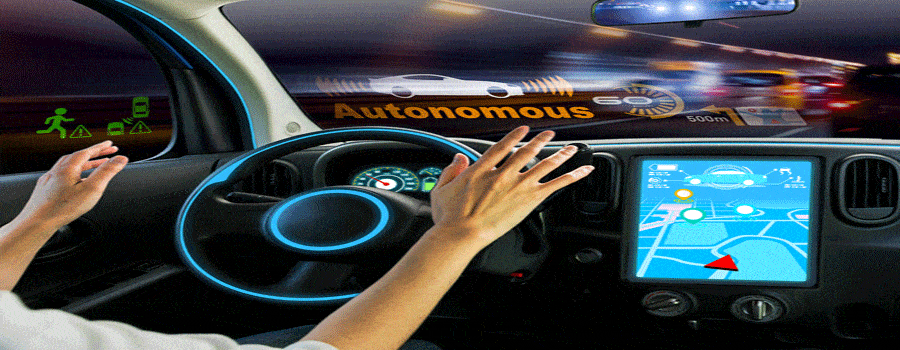New Technology Improving Safety. 
Everybody knows that the roads can be a dangerous place, whether you’re in a car, on foot or a bicycle. Every year thousands of people are injured on roads, some of them seriously.
However, with the increase of driver assistance systems, such as assisted parking, blind spot sensors and autonomous emergency braking systems, recent studies have shown that this rise in technology is reducing the risk of accidents. Based on research conducted by the Society of Motor Manufacturers and Traders (SMMT) and JATO Dynamics, the roads are becoming safer.
Nearly seven in 10 new cars in the UK (66.8%) are available with at least one self-activating safety feature
The sensors
Driverless cars are designed to have almost a superhuman-like ability to recognize the world around them. This is because they use multiple sensors to gather tons of data about their environment so that they can seamlessly operate in a constantly changing environment.
Essentially, companies developing autonomous vehicles are really just trying to replicate how a human drives using these sensors.
Decrease in Accidents
Alongside these advances in vehicle safety systems, the rate of road accidents has been falling. Figures cited by the SMMT show that road accidents in the UK have dropped by nearly 10% since 2012. The organisation suggested this decline is set to continue as car manufacturers strive to create increasingly sophisticated systems to enhance safety.
While completely autonomous cars may still be some way off, millions of drivers are already benefiting from technology that’s helping to make the roads a safer place to be.
Basic safety tips
Although improvements in vehicle technology might be reducing the level of danger, it’s essential that you don’t fall into the trap of becoming complacent about safety when you’re on the roads. For example, it pays to bear the following pointers in mind:
1. Focus on driving
- Keep 100% of your attention on driving at all times – no multi-tasking.
- Don’t use your phone or any other electronic device while driving.
- Slow down. Speeding gives you less time to react and increases the severity of an accident.
2. Drive “defensively”
- Be aware of what other drivers around you are doing, and expect the unexpected.
- Assume other motorists will do something crazy, and always be prepared to avoid it.
- Keep a 2-second cushion between you and the car in front of you.
- Make that 4 seconds if the weather is bad.
3. Plan ahead
- Build time into your trip schedule to stop for food, rest breaks, phone calls or other business.
- Adjust your seat, mirrors and climate controls before putting the car in gear.
- Pull over to eat or drink. It takes only a few minutes.
4. Practice safety
- Secure cargo that may move around while the vehicle is in motion.
- Don’t attempt to retrieve items that fall to the floor.
- Have items needed within easy reach – such as toll fees, toll cards and garage passes.
- Always wear your seat belt and drive sober and drug-free.
Making a personal injury claim
Even if you’re careful, there’s always a risk that you’ll suffer an accident on the roads. If you’ve experienced an injury and you believe someone else was partly or fully to blame, you may be able to make a road traffic accident claim. You can seek compensation if you suffered an injury while driving, as a passenger or a pedestrian, or if you were riding a bike,
Our personal injury solicitors can advise if you have a case for compensation. Simply call us on on 0161 685 0070 or contact us online to find out more. We fund our cases on a No Win, No Fee basis, meaning there is no financial risk to you.
Error: Contact form not found.
[vc_basic_grid post_type=”post” max_items=”3″ grid_id=”vc_gid:1522067275384-ad0a07df-1949-0″ taxonomies=”61″][/vc_column][/vc_row]

